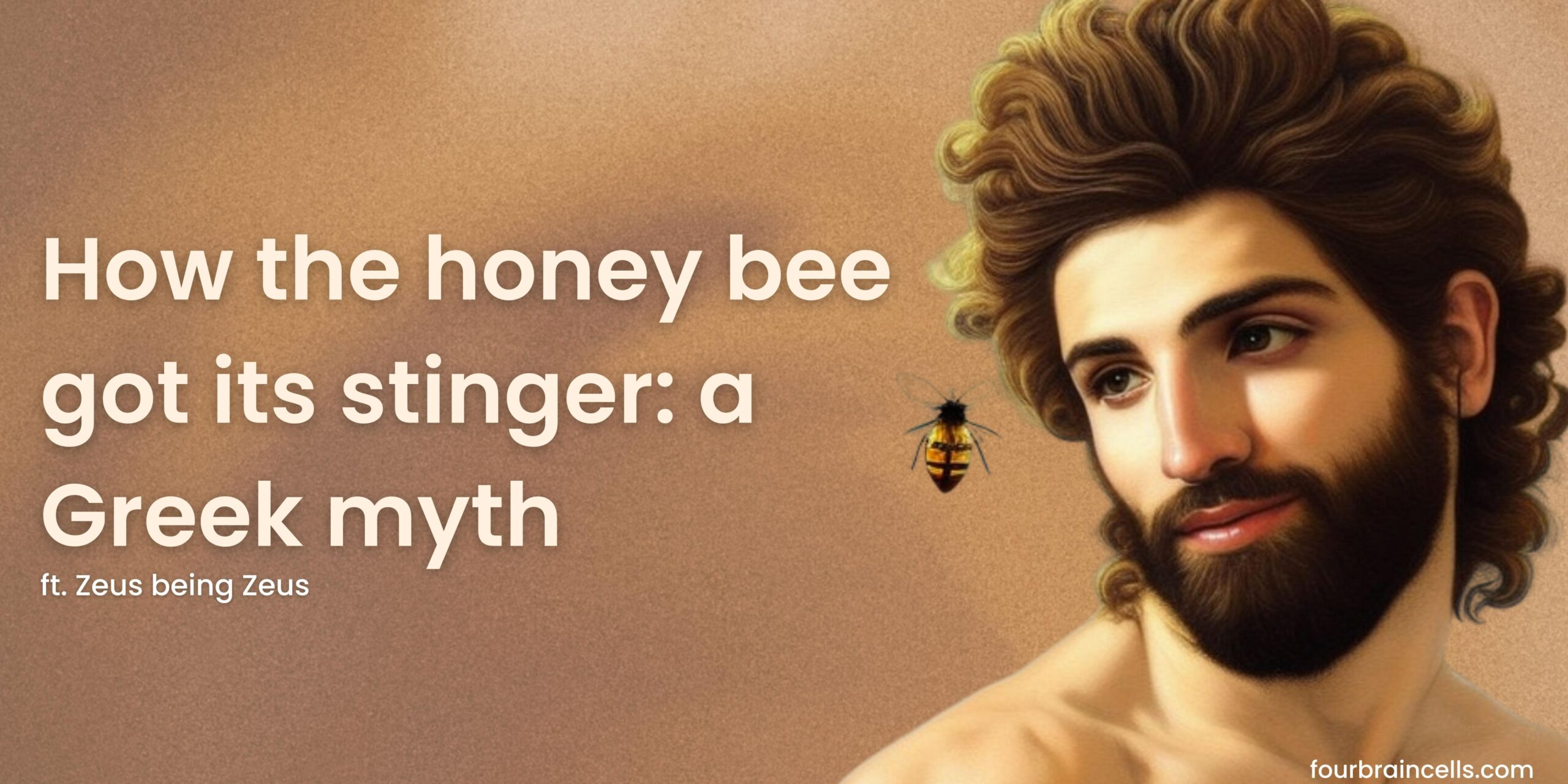Love was in the air in Olympus that day.
Zeus, the quintessential Greek playboy, was all set to marry Hera. It was the same day that Aphrodite and Hephaestus, two other Olympian Gods, were to be married too; accounting for a grand feast never seen before.
Playful as he was, Zeus presented a challenge on the day of his marriage: he would grant a favor to anybody who could make the finest dish Olympus had ever tasted.
This news spread like wildfire. The lesser immortals and animals made a plethora of dishes to impress the mighty Greek Gods, bearing new cuisines and peculiar ingredients.
Then came the time to decide the winner of the Olympian MasterChef.
Akin to competent judges, Zeus and Hera strode around, complementing and critiquing as they devoured the dishes.
Among these dishes was a sticky, gooey amber-colored liquid- a liquid so sweet that no God had ever been this driven by pleasure before. Its taste was unparalleled, and it was clear in an instant that whoever prepared this dish would be the winner.
Honey, trapped
Much to everyone’s surprise, the dish was prepared by a tiny, timid honey bee named Melissa. She called it ‘honey.’
“So tell me, what is it that you wish to ask for?” asked Zeus when Melissa’s dish was declared the winner.
Melissa replied, “I’m humbled to be declared as the winner, but oh King of the Gods, please grant me a weapon. I’m tired of hunting for honey all day. I hop on from one flower to the next, collecting the nectar drop by drop. Even the tiniest fraction of honey takes me ages to gather, and my efforts are all in vain when some petty mortal comes by and steals this hard-earned honey from the nest. I need a weapon- something that I can use to kill those who attempt to raid my nest. After all, the irresistible smell of honey attracts many.”
This reply infuriated Zeus. He was a God after all, and his mighty mind had no room for petty self-pity.
“How dare you ask for a weapon to kill someone, while selfishly treasuring your honey? A talent like yours should be shared, not hoarded.”
No mortal child’s temper tantrums could match the wrath of Greek Gods; they were far, far worse when irked. Melissa’s favor had irked Zeus, and his anger was evident in the favor he was about to grant.
“Let me make it easier for you- you will now be the queen of a swarm of bees. Thousands of worker bees will help you gather this precious liquid, so you don’t need to forage alone. And as promised, I shall grant you a sting as a weapon- but here’s the catch: if you use it, you will die. Such is the price you pay for your hubris and self-pity.”
Soon, Melissa began to feel something changing within her- a large, barbed sting now stuck out of her tiny body. If Melissa were to ever use this sting on a mammal with thick skin, she’d have a hard time removing it without injuring herself and would rupture her abdomen while doing so.
And that, folks, is how the honey bee got its stinger- which it can use only once.
To bee or not to bee
Today, this myth lives on as a reality: female honey bees possess this fatal stinger. However, they rarely use it unless they’re threatened or need to protect their beehive. Moreover, the bee dies only when it stings a thick-skinned organism, causing the stinger to lodge itself in the skin.
Other creatures with stings, like wasps and hornets, can get away with stinging you, and they can do it multiple times without any harm. As the apiculturist Eric Mussen says:
“A wasp or a bumblebee can sting again and again, but the honeybee only gets you once, and it’ll get you good.”
Mythos, a retelling of Greek myths by Stephen Fry also notes:
Melis is Greek for honey. It is also true that science calls the order of insects to which the honeybee belongs Hymenoptera, which is Greek for ‘wedding wings’. The Greek for ‘immortal’ is ambrotos and ‘immortality’ itself is ambrosia, which became the name of the specially blessed honey.
This blog is an adaption of Zeus and Hera’s tale from Mythos. If you’re interested in reading more about Greek mythology, Mythos by Stephen Fry is an excellent place to start.
The tale of Zeus, the honey bee, and its sting serves a moral lesson, one that reminds us of both the pettiness of Greek Gods and the consequences of evil thoughts. Alas, as the famous adage rightly says, “Evil wishes, like chickens, come home to roost.”

Leave a Reply